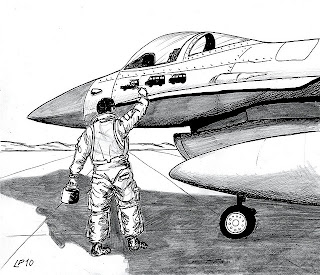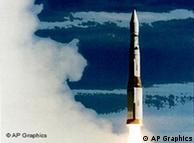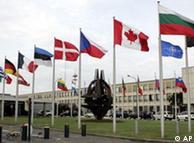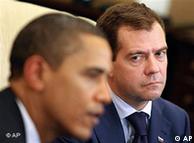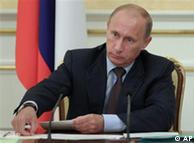Poland's President Bronislaw Komorowski held talks on Wednesday with US President Barack Obama in the wake of new WikiLeaks revelations which showed Polish anger at Washington's abandoning of its original shield plans and its increasing cosiness with Russia.
Ahead of the talks, Prime Minister Donald Tusk announced that US treatment of Poland in negotiations over the shield had stripped his country of "all illusions" it had of its NATO ally.
Obama scrapped his predecessor's plans to base radar and interceptor missiles in Eastern European NATO member states back in 2009 as part of his campaign to "reset" relations with Moscow. Russia's objection to the deployment of missiles on its borders led to Obama modifying the plans last year, opting to deploy medium- and short-range missile interceptors in Poland instead.
At a NATO-Russia summit in Lisbon on Nov. 20, the two former Cold War foes agreed to cooperate on missile defense, a factor seen as crucial to improving relations. In response to NATO's approach, Russia agreed to cooperate with the alliance in Afghanistan.
The two sides are scheduled to begin discussions next week on how to link NATO's and Russia's separate systems to provide a joint shield aimed at protecting Europe against incoming missiles from rogue nations. A final viability study is expected in July 2011.
WikiLeaks reveals NATO plans to expand shield to Baltics
However, further revelations could ratchet up the simmering tensions at these negotiations. In addition to revealing Poland's fear of Russia and the widely held belief among NATO member states in the Baltics and Central Europe that Russia, their former ally, is their greatest security threat, the latest WikiLeaks cables also exposed NATO plans to extend the missile defense plan to include former Soviet states Estonia, Latvia and Lithuania.
The documents also revealed that nine divisions of NATO troops would be involved in the protective deployment in the Baltics, including soldiers from the US, Britain, Germany and Poland.
The cables claim the expansion was prompted by fierce lobbying by the Baltic States and pressure from Poland for NATO to renew its commitment to its security. Germany was also named as being a major force in pushing through the expansion which has been accepted and integrated into NATO plans, according to media reports.
Signed by US Secretary of State Hillary Clinton, the cables also detailed plans by NATO to keep the expansion secret as not to heighten tensions between the alliance and Russia.
Russia considers own security as missile deal sours
The revelations pertaining to the extended missile shield have bewildered and angered Russia just weeks after its breakthrough summit with NATO. Russian President Dmitry Medvedev said the latest leaks showed the "cynicism" of US foreign policy, while Prime Minister Vladimir Putin said any "additional threats" on its borders would be counteracted by Russian military deployments.
"The latest WikiLeaks revelations that NATO had drawn up a secret contingency plan for the defense of Poland and the Baltic States from potential Russian military aggression certainly raised some eyebrows in Moscow," Jan Gaspers, an expert on European Security and Defense Policy at the University of Cambridge's Center of International Studies, told Deutsche Welle.
"Selling the planned NATO missile defense shield as being exclusively directed against Middle Eastern rogue states and specifically Iran will now become even more difficult."
While both Medvedev and Putin claimed that the leaks were of "no consequence" and would not damage US-Russia relations, NATO's amendment of its missile shield ambitions has certainly put Moscow on alert.
"At the latest NATO summit in Lisbon, Russia was invited to take part in NATO's missile defense scheme," said Gaspers. However, he added that the hostile atmosphere at the OSCE Astana Summit at the beginning of this month had once again underlined how difficult cooperation between NATO and Russia on missile defense and transatlantic security more generally is likely to be.
"Russia agreed with the shield but added conditions by introducing a joint NATO-Russia threat assessment, which many NATO members are not keen on doing at all," Jana Kobzova, a Russia and Eastern Europe expert at the European Council for Foreign Relations, told Deutsche Welle.
Moscow hardens stance; Europe pushes for shield completion
Putin told CNN television that Russia would "ensure its own security" by deploying "new strike forces" and nuclear weapons on its borders with Eastern Europe should the shield go ahead without them. Reports in the US media suggest that Russia moved tactical nuclear warheads to within miles of its border with NATO states as recently as late spring in an apparent response to US-NATO missile defense installations in these neighboring countries.
"What was launched in Lisbon was a long process of negotiations between NATO and Russia," Kozova said. "Medvedev's and Putin's statements are aimed at increasing the stakes in these negotiations."
In Kozova's opinion the statements are also face-saving measures aimed at a domestic audience in the aftermath of the agreement in Lisbon. "The Russian public still perceives NATO as a Cold War adversary, and even though Russia agreed to closer cooperation with NATO, this does not mean that Russian politicians will change their rhetoric."
Experts believe that, even if Russia is left out and reacts belligerently, the missile shield will still go ahead with European powerhouses like Germany pushing the US and NATO to commit to securing the continent from external threats.
"However, this commitment will most likely be attached to further concessions on part of certain NATO member states in the sphere of nuclear disarmament," Gaspers said.
"Indeed, under the current coalition government, the struggle for a world free from nuclear weapons has become a core tenet of German foreign policy. Accordingly, a lot of Germany's NATO diplomacy in the months to come will continue to focus on this topic."
From German, Polish and Russian newsfeeds and sources.






